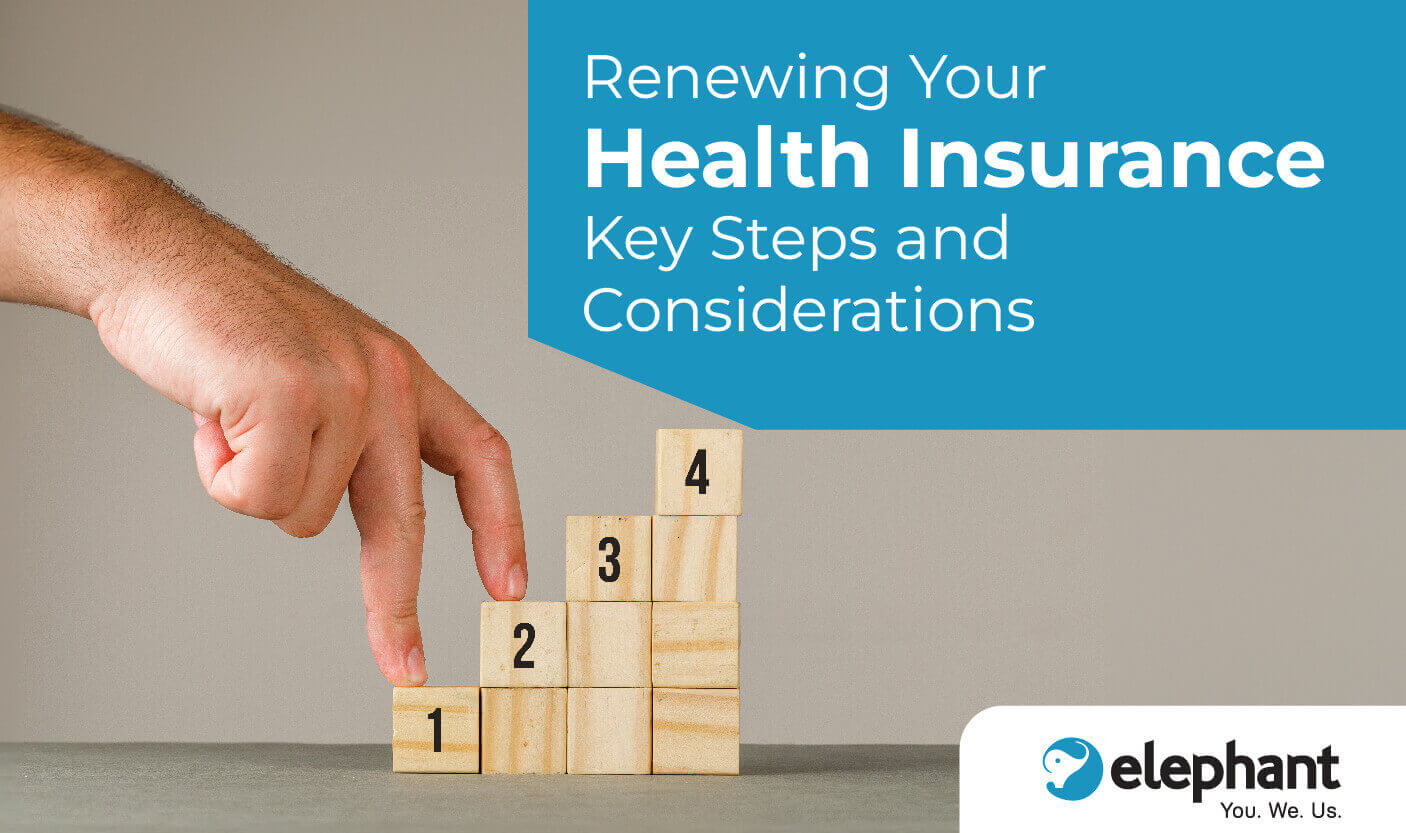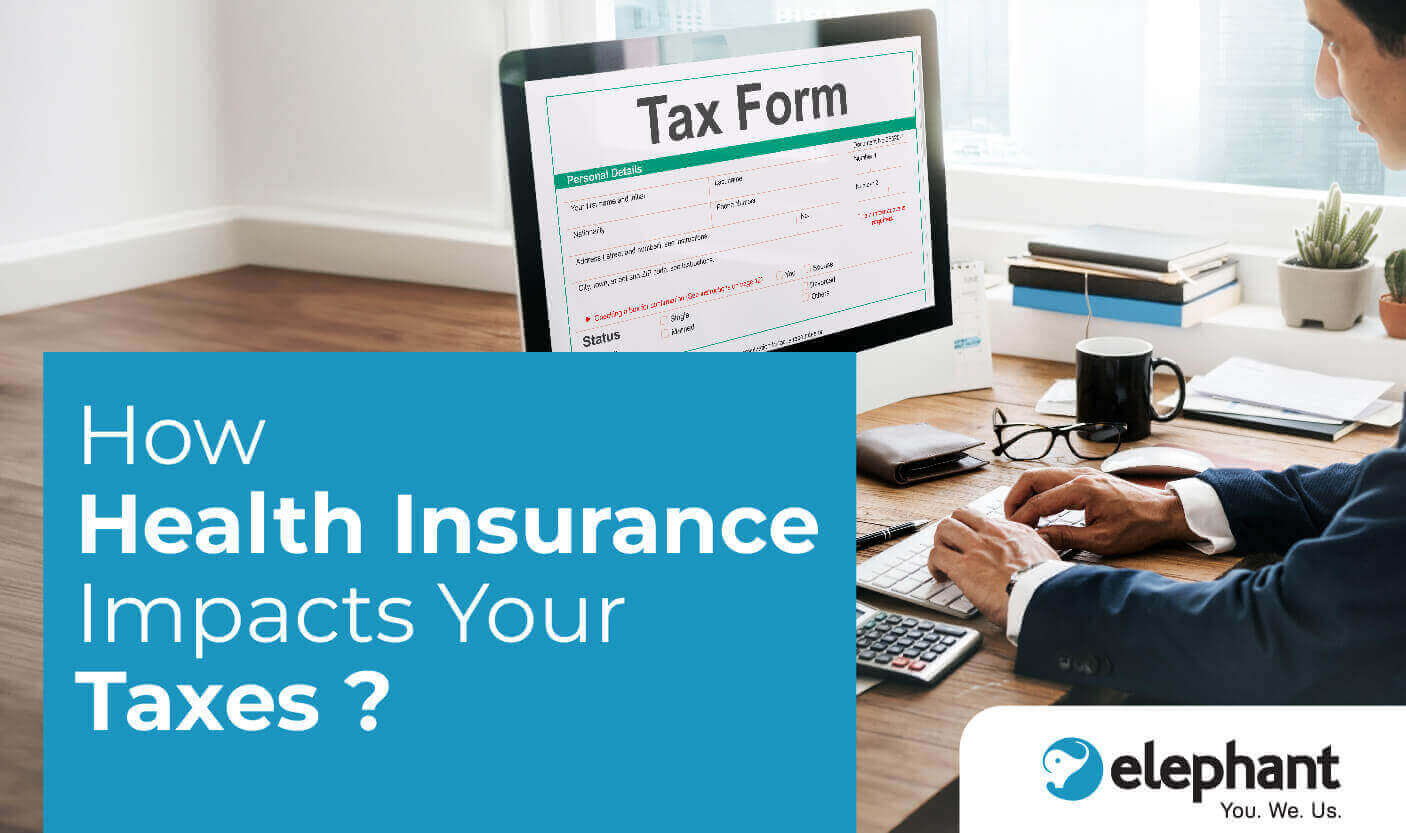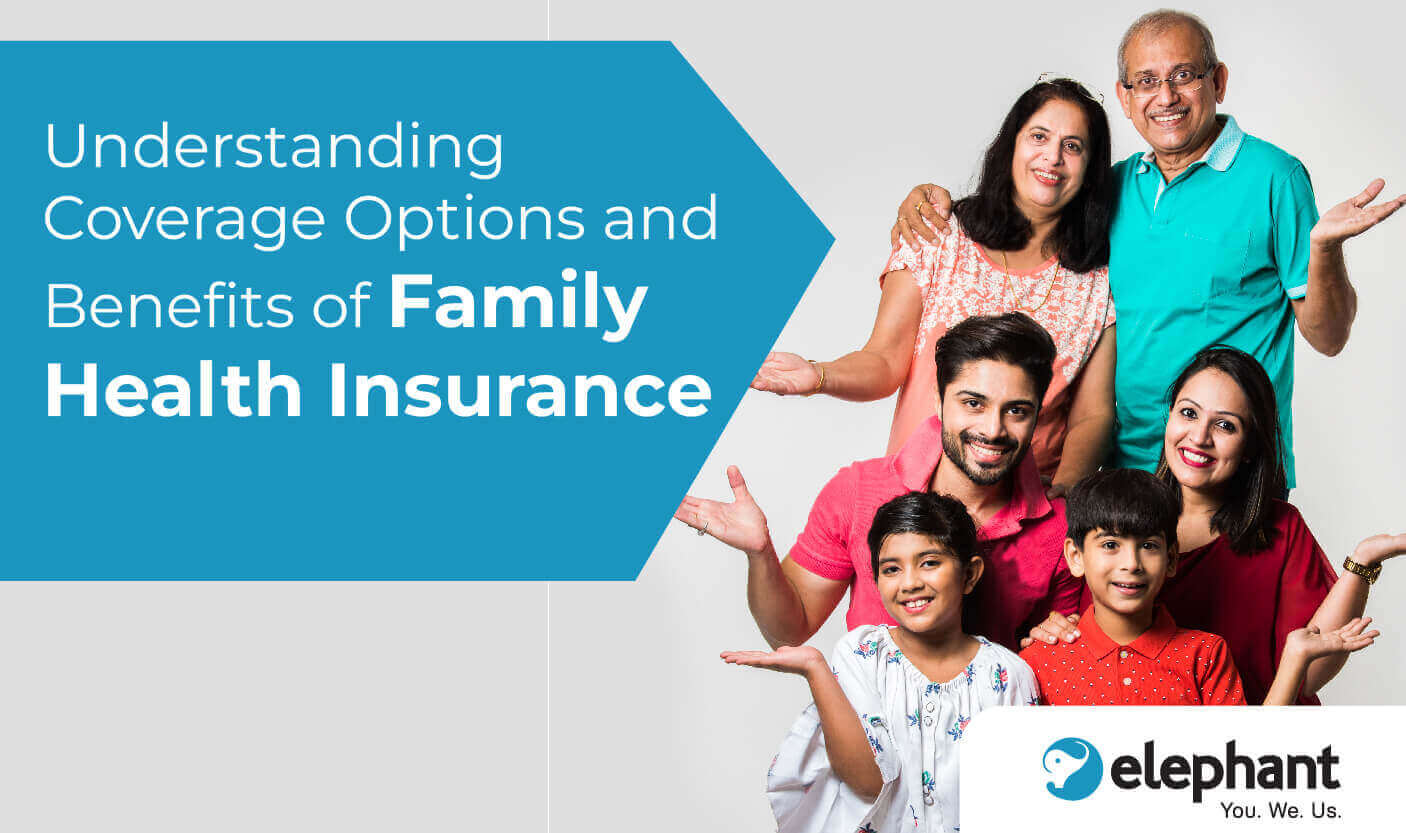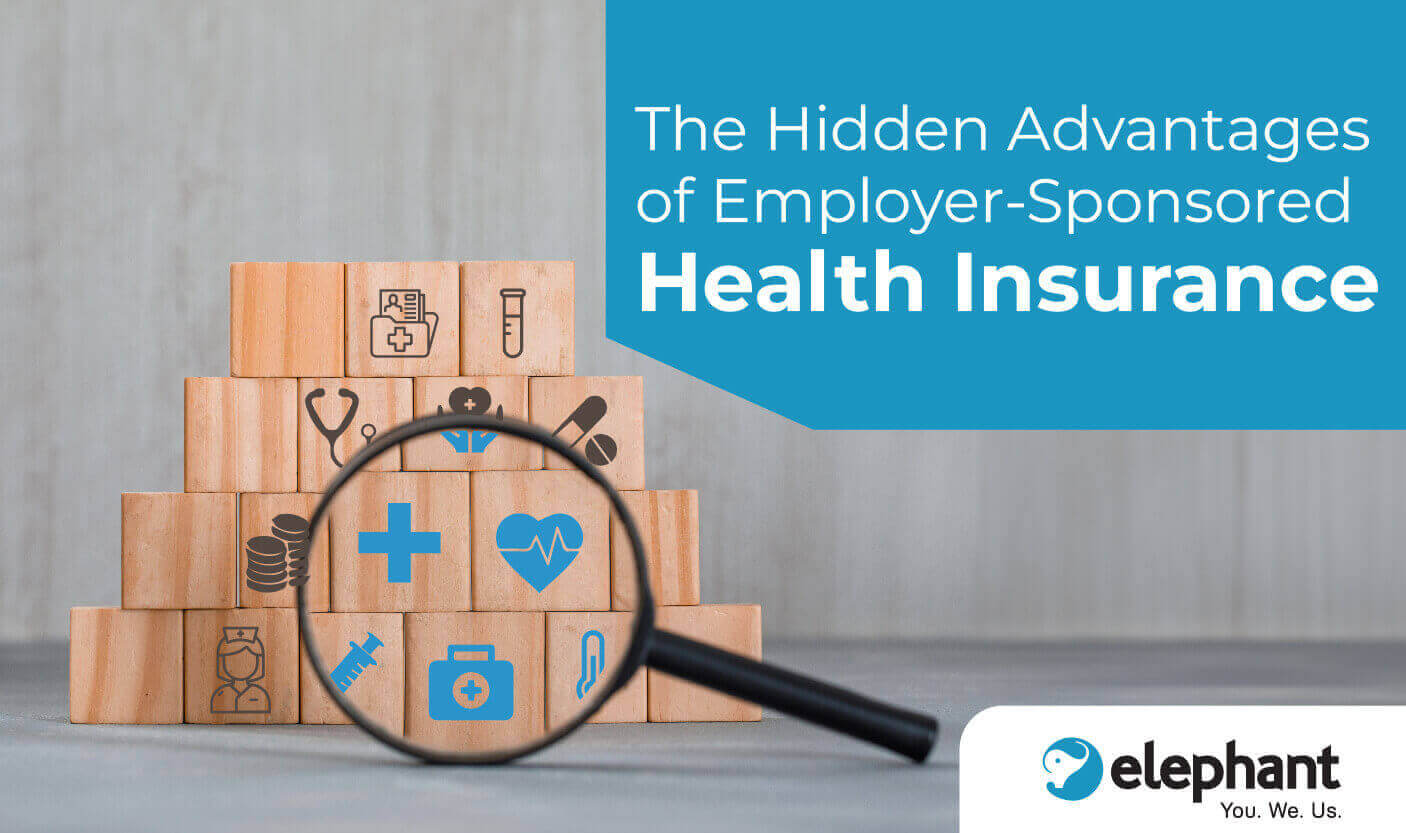-
CAR INSURANCE
Car InsuranceFlat 80%* OFFGet right cover at best price on your car insurance policy. Unlock your corporate superpower today.GET QUOTESWhat does your car insurance cover you for?Comprehensive coverageLiability coveragePersonal accident coverageZero-depreciation coverMany more add-on coversGet your car insured with the best features - completely online, right now!CloseWhat do you get at Elephant Insurance?Corporate Superpower of best Car Insurance DealsAI-Based Car Insurance RecommendationsHandpicked Insurers for Car InsuranceUnmatched Prices on Car Insurance PremiumsInstant Policy Issuance for your vehicle100% Assistance from ExpertsDigital Relationship ManagerBest-in-Class Claims ServiceLifetime Personalised AccountRenewal Management
-
TWO-WHEELER
INSURANCE
Two-Wheeler InsuranceStarting at Rs.546* only.Get right cover at best price and insure your two-wheeler for a joy ride. Unlock your corporate superpower today.GET QUOTESWhat does your two-wheeler insurance cover you for?Comprehensive coverageLiability coveragePersonal accident coverageZero-depreciation coverMany more add-on coversGet your two-wheeler insured with the best features - completely online, right now!CloseWhat do you get at Elephant Insurance?Corporate Superpower of best Two-wheeler Insurance DealsAI-Based Two-wheeler Insurance RecommendationsHandpicked Insurers for Two-wheeler InsuranceUnmatched Prices on Two-wheeler Insurance PremiumsInstant Policy Issuance for your vehicle100% Assistance from ExpertsDigital Relationship ManagerBest-in-Class Claims ServiceLifetime Personalised AccountRenewal Management
-
TERM LIFE
INSURANCE
Term Life InsuranceRs.1 crore life cover at Rs.503/month* only.Securing your loved ones future is not expensive, it is priceless! Be a superhero by unlocking your corporate superpower today.GET QUOTESWhat does your term life insurance cover you for?Death benefitsCritical illnesses coverAccidental death benefitWaiver of premiumMany more add-on coversGet your term life insurance with the best features - completely online, right now!CloseWhat do you get at Elephant Insurance?Corporate Superpower of best Term Life Insurance DealsAI-Based Term Life Insurance RecommendationsHandpicked Insurers for Term Life InsuranceHandpicked Insurers for Term Life InsuranceInstant Policy Issuance for you and your family100% Assistance from ExpertsDigital Relationship ManagerBest-in-Class Claims ServiceLifetime Personalised AccountRenewal Management
-
HEATLH
INSURANCE
Health InsuranceGet Rs.5 lakh health cover at Rs.18/day* only.Protecting your health is always our priority. Be a superhero by unlocking your corporate superpower today.GET QUOTESWhat does your health insurance cover you for?Unexpected medical billsPre and post hospitalisation billsDay care treatmentsMaternity, newborn care and organ donor expensesMany more add-on coversGet your health insurance with the best features - completely online, right now!CloseWhat do you get at Elephant Insurance?Corporate Superpower of best Health Insurance DealsAI-Based Health Insurance RecommendationsHandpicked Insurers for Health InsuranceUnmatched Prices on Health Insurance PremiumsInstant Policy Issuance for you and your family100% Assistance from ExpertsDigital Relationship ManagerBest-in-Class Claims ServiceLifetime Personalised AccountRenewal Management
-
CYBER PROTECT
Cyber Protect InsuranceGet Rs.1 lakh cyber protection cover at Rs.55/day* only.Don't be a victim of cyber fraud! Get right cover at best price on your cyber insurance policy. Unlock your corporate superpower today.GET QUOTESWhat does your cyber insurance cover you for?Legal protectionUnauthorised online transaction coverPhishing and email spoofing coverCyber stalking and identity theft coverCyber extortion and many more coveragesGet your cyber insurance with the best features - completely online, right now!CloseWhat do you get at Elephant Insurance?Corporate Superpower of best Cyber Insurance DealsAI-Based Cyber Insurance RecommendationsHandpicked Insurers for Cyber InsuranceUnmatched Prices on Cyber Insurance PremiumsInstant Policy Issuance for your cyber protection100% Assistance from ExpertsDigital Relationship ManagerBest-in-Class Claims ServiceLifetime Personalised AccountRenewal Management
-
OTHER
PRODUCTS5
Critical Illness InsuranceA must-have protection to secure you against critical illnesses.GET QUOTESPersonal Accident InsuranceAccidents are sudden and can cause damage to your financial planning as well.GET QUOTES
Home / Blogs / Health Insurance / Page 2
Health Insurance Blogs
Helping you to make informed decisions about insurance

10 Sneaky Reasons Your Health Insurance Claim May Not Get Approved
published on May 29, 2024
In situations of unforeseen health-related crises, a health insurance policy comes in to save the day, promising financial help and facilitating the burden of healthcare costs. Notwithstanding, the claim settlement process isn’t direct all the time. Now and then, minor oversights or false impressions can prompt claim dismissal, leaving you feeling disheartened and financially unstable. In this blog, we will uncover 10 reasons why your medical coverage guarantee may get denied.
Are you surfing the internet and searching for a health insurance policy customised to your necessities? Worry not! Visit Elephant.in and follow the 3 easy steps to get your policy instantly!
- Understanding Policy Exclusions
Each health insurance policy has exclusions and conditions under which claims are not covered. These can go from prior conditions not disclosed during the beginning of the policy to specific treatments expressly excluded in the policy. Cautiously review your policy, comprehend the exclusions completely, and explain any questions to your insurer to avoid surprises during the claims procedure.
- Incomplete Documentation
Organised documentation is key to having a seamless claims procedure. Ensure that you present all vital documents required under your policy. This normally incorporates clinical records, doctor prescriptions, diagnosis reports, and bills. Deficient or missing records can essentially defer or try and lead to claim dismissal, causing pointless pressure and financial strain.
- Pre-authorisation Problems
Certain procedures require pre-approval from your insurer before availing them. The inability to acquire pre-approval, particularly for costly or specialised procedures, can lead to claim dismissal. Get to know your strategy’s pre-approval necessities and stick to them constantly to guarantee your claim sails through without a hitch.
- Not Renewing the Policy on Time
The lapse of policy is one of the main reasons for the dismissal of a health insurance claim. Health insurance policies are generally valid for one year and should be restored yearly. If you neglected to renew the insurance on time and, in the meantime, fell sick during that period, your policy would be pointless, and your claims would be dismissed.
- Not Adhering to Claim Filing Timelines
There isn’t a moment to spare while recording claims. Every health insurance plan specifies a particular period for submission of the claim, commonly ranging from 30 to 180 days from the date of discharge. Surpassing this period can prompt claim dismissal. Present your claim documents expeditiously to keep away from unnecessary delays and complexities.
- Failing to Disclose Pre-existing Conditions
While acquiring a health insurance plan, complete transparency concerning prior conditions is important. Even unrelated illnesses can be grounds for rejecting claims if not disclosed earlier or if their severity is misrepresented. Tell the truth and be upfront about your clinical history to ensure your policy stays valid and claims are handled reasonably.
- Exceeding Coverage Boundaries
A sum assured is the maximum amount a health insurance policy will pay for medical expenses. Ensure your treatment costs stay within the limit as far as possible. Surpassing the assured sum can bring about a partial claim settlement or even dismissal of the claim, leaving you responsible for the leftover expenses. So, be mindful of your coverage limits during your treatment and hospital stay.
- Overlooking Waiting Periods
Numerous health insurance policies have waiting periods for specific treatment procedures or prior conditions. This implies you probably won’t be qualified for the inclusion of a particular condition until a period has passed after the start of the policy. Understanding and sticking to these waiting periods is critical to keep claim dismissal and ineligibility at bay.
- Updated Policy Terms and Conditions
At times, insurers may adjust the insurance terms and conditions, for example, the coverage benefits and premiums. As a result, your claim may get denied if both your coverage and your policy have been altered.
- Fraudulent Claims
Deliberately submitting bogus or fabricated data in your claim is fraud and can have serious outcomes. This includes fabricating medical records, exaggerating symptoms, and requesting reimbursement for non-covered expenses. Taking part in such unscrupulous practices puts your claim in danger and risks cancellation of the policy and possible legal repercussions.
Conclusion
Understanding these reasons for claim rejection enables you to approach the process with informed vigilance, despite the complexity of the health insurance landscape. By cautiously evaluating your insurance terms, carefully setting up your claim documents, and sticking to pre-authorisation necessities, timelines, and inclusion limits, you can fundamentally expand your possibilities of claim approval and ensure seamless procedures during health-related crises. Keep in mind that being honest and open with your insurer and seeking professional guidance when required are tools for securing your well-being.
To clear any further inquiries, contact our specialists by messaging us at support@elephant.in. Or call us on our help number: 1800 266 9693! Visit Elephant.in to get the best quotes!
*Terms and conditions apply. The information provided in this article is generic in nature and for informational purposes only. It is not a substitute for specific advice in your own circumstances. You are recommended to obtain specific professional advice from before you take any/refrain from any action. Tax benefits are subject to changes in tax laws. Please contact your tax consultant for an exact calculation of your tax liabilities.| EL/BLOGS/24-25/05

Premium Reduction Tactics for Your Health Insurance Plan
published on May 28, 2024
Premiums for healthcare coverage keep on increasing, all thanks to the rising medical services costs, which can cause financial distress. There are strategic ways of bringing down the premiums of your healthcare coverage plan, ensuring you get sufficient coverage without burning the last rupee.
1. Get Insured at a Younger Age
Time is your companion concerning health insurance premiums. Beginning a health insurance plan at an earlier age, preferably in your 20s or 30s, offers huge cost benefits. Young people commonly represent a lower hazard to insurance providers, which means they are offered lower premiums when compared to people who get themself insured at an older age. This early investment reaps financial rewards throughout your policy years, providing long-term savings and peace of mind.
2. Assess Your Needs and Get Coverage Accordingly
Not all health insurance plans are made equivalent. Fight the urge to just renew your current policy without exploring options. Conduct planned research and compare the various options by different insurers you come across and then make the decision accordingly. Break down your necessities and clinical history to recognise a policy that lines up with your current and expected medical necessities. Clarify some issues by asking questions and taking expert guidance to make sure that you are not shelling out excess money for coverage that is not necessary.
3. Consider Preventive Healthcare
Remember that prevention is better than a cure. In addition to the fact that it is great for your well-being to focus on preventive healthcare, it could get you a good deal on your health insurance plan, helping you save costs. Numerous insurers offer discounts to people who effectively take part in preventive healthcare, boosting a proactive way to deal with prosperity.
4. Harness the Magic of No Claim Bonus: Rewarding Responsible Choices
The No Claim Bonus (NCB) is an important reward offered by insurers for having a claim-free year. Your health insurance plan’s premiums drop in recognition of your responsible health management with each claim-free year. This incentive empowers preventive care and mindful claim filing, bringing down your financial burden in the long run. Keep in mind that even minor claims can reset your NCB to zero, so ask your doctor for concerns and think about alternative cures for non-critical illnesses.
5. Explore Cost-Sharing Options
To bring down the expense of your health care coverage plan, consider cost-sharing options like deductibles and co-pays. A deductible anticipates that you should pay a sum before the insurer starts taking care of expenses. Similarly, a co-pay includes sharing a part of the claim amount with the insurer. While these choices raise personal costs at first, they fundamentally diminish your premium, making health insurance more affordable. Cautiously assess your financial situation before deciding on these choices.
6. Consider Family Floater Plans
If you have a family, explore family floater plans. These plans cover the entire family under a single sum assured, often at a lower premium compared to individual plans, especially for younger family members. This option promotes cost-effectiveness and simplifies the procedures of claims, guaranteeing all the members of the family receive complete coverage under one umbrella. Nonetheless, remember that the total sum assured is shared by the whole family so pick a policy with adequate coverage based on your family’s expected necessities.
7. Stay Informed
The universe of health insurance is continually advancing. Keep up with updates from your insurer, new plan offerings, and regulatory changes. Routinely survey your health insurance plan and its terms. To ensure you are aware of your coverage and can make informed decisions regarding plan modifications or renewals, don’t be afraid to seek clarification from your insurer or consult an insurance advisor.
8. Purchase Health Insurance for a Longer Tenure
By and large, the renewal time of most health insurance plans is done yearly, except there are some insurance plans accessible with policy terms of 2 or 3 years. Picking a health insurance plan with a longer tenure empowers the insured party with discounts and benefits on the premium of around 5% to 15%, which can be a significant saving. It is prudent to pick plans with extended policy terms to acquire higher yields in the long haul.
9. Choose a Higher Deductible Option in the Insurance Plan
The deductible is what one pays toward the start of the health insurance coverage. The insurance premium goes down when the deductible is raised. It is, however, important to select a higher deductible cautiously since it would mean raised well-being-related costs that one would have to bear without help.
Conclusion
A reduction in your health insurance premiums doesn’t need to be an overwhelming task. By utilising the above techniques and focusing on an informed independent direction, you can explore the intricate world of health insurance with certainty. Keep in mind that a very organised and cost-effective health coverage plan is an investment in your prosperity, giving important security and genuine serenity for yourself and your friends and family.
Still looking for a health insurance plan that fits your requirements? No more searching because Elephant.in’s AI build platform helps you in every stage of selecting, buying and after purchase experience seamlessly.
To clear any further doubts with our specialists, message us at support@elephant.in or call us on our toll-free number: 1800 266 9693!
*Terms and conditions apply. The information provided in this article is generic in nature and for informational purposes only. It is not a substitute for specific advice in your own circumstances. You are recommended to obtain specific professional advice from before you take any/refrain from any action. Tax benefits are subject to changes in tax laws. Please contact your tax consultant for an exact calculation of your tax liabilities.| EL/BLOGS/24-25/04

Renewing Your Health Insurance: Key Steps and Considerations
published on May 28, 2024
As the year turns another page, so does the validity of numerous health insurance policies. For many people in India, recharging health insurance coverage carries a blend of vulnerabilities. While exploring the renewal process may be monotonous, understanding the vital steps and considerations can make your decisions more impactful. In this blog, we explain the steps you should take to make sure your health insurance keeps protecting you and your family.
Are you looking for a perfect health insurance policy? In just three easy steps, you can get a health insurance policy that fits your needs at Elephant.in!
- Understanding Renewal Periods and Deadlines
Missing your strategy restoration cutoff time can have unanticipated outcomes, leaving you weak even with startling health-related crises. It is essential to be aware of your policy’s renewal period, which is typically communicated via renewal notices or the website or mobile app of your insurer. To avoid policy lapses and potential waiting periods for pre-existing conditions, you must promptly renew your health insurance within the allotted time frame.
- Evaluating Your Needs
Life is constantly evolving, as are your healthcare necessities. Take a moment to evaluate your current circumstances before renewing. Has your family’s situation changed? Have you fostered any new well-being concerns? Does your ongoing arrangement address your developing necessities? Being aware of your needs permits you to renew health coverage with a plan that aligns with your present and expected future prerequisites.
- Exploring Your Options
Loyalty is commendable, but so is exploration! While renewing with your existing provider is convenient, don’t shy away from comparing alternative options. Research plans offered by other insurers, focusing on coverage scope, sum assured, network hospitals, claim settlement ratios, and premium costs. Remember, the ideal plan isn’t a one-size-fits-all solution – tailor it to your unique needs and budget.
- Decoding Terms and Conditions
Renewing isn’t just about clicking a button. It’s about understanding the updated terms and conditions of your renewed policy. Carefully review changes in coverage inclusions and exclusions, premium adjustments, network hospital modifications, and claim settlement procedures. Feel free to clarify any doubts with your insurer or an independent insurance advisor to renew your health insurance with complete transparency.
- Check Your Claims History
Your claim history holds valuable insights. If you haven’t recorded any claims during the past policy year, you may be qualified for a No Claim Bonus (NCB), prompting decreased premiums upon renewal. This reward for responsible health management incentivises preventive care and can significantly ease your financial burden. Conversely, a high claim history may lead to premium hikes or stricter policy terms. Utilise this information to adapt your healthcare approach and renew health insurance with informed decisions.
- Increase Assured Sum Under Policy
As healthcare costs consistently increase and inflation decreases the purchasing power, looking into your health insurance policy is crucial. Try not to just renew- now is the right time to proactively upgrade protection. Make sure your coverage keeps up with your changing needs and is sufficient to cover your anticipated expenses. Keep in mind that sufficient health care coverage is an interest in your prosperity, offering peace and financial security while confronting unexpected medical circumstances.
- Consider Getting A Top Up Plan
Proactive planning is key when renewing your health insurance. Take into consideration the anticipated requirements you will have for healthcare in the upcoming years. Are intending to begin a family? A top-up rider with maternity benefits can cover everything you need for this exciting but expensive time. Does your family history suggest a predisposition to certain critical illnesses? Adding critical illness cover offers true serenity and monetary security in testing times. If you’re hoping to extend protection to your whole family, consider a family floater plan, which streamlines coverage for the entire family under one umbrella, possibly offering cost savings when compared to individual plans.
Conclusion
Renewing health insurance is a proactive step towards protecting your prosperity. By understanding the process of renewal, taking into account your increasing necessities, exploring choices, interpreting policy updates, and recognising your claim history, you can explore this vital stage with certainty. Keep in mind that a health insurance policy renewal implies renewed protection, giving you the power to confront the future with peace, knowing that your health is prioritised and safeguarded.
Visit Elephant.in to find the most reasonable health insurance quotes! Send us an email at support@elephant.in or call our toll-free support number at 1800 266 9693 to get in touch with our professionals!
*Terms and conditions apply. The information provided in this article is generic in nature and for informational purposes only. It is not a substitute for specific advice in your own circumstances. You are recommended to obtain specific professional advice from before you take any/refrain from any action. Tax benefits are subject to changes in tax laws. Please contact your tax consultant for an exact calculation of your tax liabilities.| EL/BLOGS/24-25/03

Understanding Tax Benefits: How Health Insurance Impacts Your Taxes
published on April 2, 2024
In the complex world of personal finance, tax planning and health insurance are tightly linked. As we explore the evolving world of India’s healthcare and taxation framework, understanding how your health insurance plan impacts your taxes becomes vital. This broad guide plans to clear up the complexities, allowing you to make informed decisions for both your well-being and financial prosperity.
Understanding Tax Benefits – The Lay of the Land:
First, let us understand the landscape before we get into the particulars of tax deductions. The Indian Income Tax Act, 1961 offers different tax reductions connected to health care coverage plans, and these can be astoundingly valuable in decreasing your income tax payable.
1. Section 80D
Maximising Your Deduction: Note that the tax deduction limit varies based on age. This limit applies to the total premium paid for all covered individuals. So, a young working couple can claim up to Rs. 50,000 (Rs. 25,000 each) as a joint deduction if both have individual plans. The deduction amount, however, increases to Rs. 50,000 per fiscal year for senior citizens above the age of 60.
2. Critical Illness Cover
This additional deduction for critical illness cover acts as a double shield. Besides the fact that you get the advantage of inclusion for hazardous illnesses, you also additionally save taxes!
3. Preventive Check-ups
Proactive healthcare is promoted by this deduction, which encourages regular checkups that may help detect health issues early and prevent complications. Keep in mind, qualified expenses incorporate a wide range of tests, from glucose and cholesterol levels to mammograms and prostate tests. Additionally, you get Rs 5000 tax benefit.
4. Employer-Provided Plans
If your employer offers a medical coverage plan, view yourself as lucky! The sum paid by your employer as premiums is not added to your taxable pay, substantially decreasing your liabilities. Keep in mind that this advantage applies just to the sum paid by your employer, not on any extra premium you contribute separately.
5. Section 80C
Section 80C permits certain investments and expenses to be tax-exempted. By planning your investments in such a way that they are spread diversely across various options like NSC, unit-linked insurance policies (ULIPs), the public provident fund (PPF), etc., you can claim deductions up to Rs 1,50,000. By taking tax benefits for health insurance plans under 80C, you can avail of a reduction in your tax burden.
Some Things To Keep In Mind When Availing Tax Reliefs
LET US Take a look at the things you must remember while availing tax deductions under Section 80D:
- Tax deductions are not applicable for health insurance premiums paid for in cash.
- If health insurance premiums are paid in parts by an individual and the parent, it makes both of these parties eligible for tax deductions.
- Premiums paid for siblings, grandparents, uncles and aunts are not qualified for tax deductions.
- Section 80D states that health insurance premiums when paid on behalf of working children are not eligible for tax relief.
- Group health insurance premiums the employer pays do not qualify for tax relief.
- No deduction is provided on the service tax and cess amount added to health insurance premiums.
Conclusion
As we conclude this guide on tax benefits on health insurance plans in India, the meaning of informed direction becomes obvious. Along with safeguarding you from health-related crises, your health coverage plan is a fundamental instrument for tax reduction. Utilise your obtained information, talk with specialists, and build a strong foundation for strength for financial prosperity that can get through future vulnerabilities.
Visit Elephant.in to get the best health insurance quotes, tailored to your needs! Email us at support@elephant.in or call us on our toll-free support number- 1800 266 9693 to get in touch with our experts!
*Terms and conditions apply. The information provided in this article is generic in nature and for informational purposes only. It is not a substitute for specific advice in your own circumstances. You are recommended to obtain specific professional advice from before you take any/refrain from any action. Tax benefits are subject to changes in tax laws. Please contact your tax consultant for an exact calculation of your tax liabilities.| EL/BLOGS/23-24/11

Understanding No Claim Bonus in Health Insurance Policies
published on March 19, 2024
Understanding the concept of the No Claim Bonus (NCB) in health insurance is essential to making informed decisions and safeguarding one’s wealth. The intricacies of NCB are discussed in depth in this blog post, with an emphasis on its significance, benefits, and crucial application for policyholders in the field of medical coverage.
Get insured in 3 easy steps! Visit Elephant.in and fill out the details, compare prices and get your health insurance policy instantly!
No Claim Bonus: Explained
NCB is a monetary incentive proposed to policyholders by insurers for each claim-free year. Going past being a financial incentive, NCB is a consolation for policyholders to zero in on preventive clinical consideration, which adjusts the interests of insurers and policyholders toward a common goal of success.
Types of No Claim Bonus
In the health insurance industry, insurers frequently provide bonuses for not making a claim. Private and public sector insurers offer NCB to policyholders who fall under the qualification standards. By and large, there are two kinds of NCB in a health insurance plan. The types are as follows:
- Cumulative Bonus: The inclusion sum increases by a fixed rate when the policyholder has a claim-free year. Remember that the premium that must be given continues as before. This increase happens for every claim-free year.
- Renewal Discounts: For every claim-free year, the rate of premium of the policy decreases by a particular percentage under this type of no-claim bonus. The insured sum remains the same under this kind of bonus.
Advantages of A No-Claim Bonus in Health Insurance
NCB in health insurance has many benefits. Some of these benefits are:
- You can financially protect yourself and your family in the event of a health crisis with the assistance of the NCB.
- The NCB in health insurance is adaptable. The no-claim bonus will not be affected when switching insurers. The bonus you have accumulated over the years will remain and be applicable. The bonus can be transferred to the new insurer.
- The benefit of a no-claim bonus encourages the policyholder to stay healthy and fit and only file a claim when it is required.
- The cost of renewing the health insurance plan is reduced as a result of the plan offering more coverage at a lower cost.
Applicability of No Claim Bonus
Not all insurance policies offer the no-claim bonus feature. Policies that do offer NCB often come with certain terms and conditions. It is vital to go through the policy documents in detail while you are in the market looking to buy a health insurance policy so that you are well informed whether it offers NCB features or not.
The benefits of a no-claim bonus are very useful. This reward can be benefitted under both an individual health insurance plan and a family floater health insurance plan. A family health floater plan covers the whole family while an individual plan just covers a solitary individual.
Make the Most Out of the No-Claim Bonus
From well-being initiatives that add to keeping up with great health to making informed choices to forestall unnecessary claims, policyholders are empowered to effectively partake in the amplification of their NCB benefits. To get the most out of their no-claim bonus, policyholders can follow these tips:
- Preventive Care: Frequent check-ups, scheduled vaccinations, and screenings are your companions. Assuming command over your well-being keeps minor issues from growing into costly claims.
- Claim Awareness: Being well-informed about your policy’s exclusions will help you avoid making unnecessary claims for expenses that are not covered.
- Stay Informed: Keep yourself updated about IRDAI regulations regarding NCB and potential changes in your insurer’s policy terms.
Conclusion
In conclusion, understanding and utilising NCB can transform your health insurance experience. By staying updated about NCB and its advantages and guidelines, you unlock a useful tool for managing your healthcare costs and well-being. Therefore, make NCB your trusted companion throughout your healthcare journey and pave the way for long-term financial security and health.
Visit Elephant.in to find the most suitable health insurance quotes! To get in touch with our professionals, send us an email at support@elephant.in or call our toll-free support number, 1800 266 9693!
*Terms and conditions apply. The information provided in this article is generic in nature and for informational purposes only. It is not a substitute for specific advice in your own circumstances. You are recommended to obtain specific professional advice from before you take any/refrain from any action. Tax benefits are subject to changes in tax laws. Please contact your tax consultant for an exact calculation of your tax liabilities.| EL/BLOGS/23-24/14

Understanding Coverage Options & Benefits of Family Health Insurance
published on March 14, 2024
In the world of insurance, health insurance is the most sought-after. A health care insurance that covers your whole family under one single policy is called family health insurance. A determined sum is insured and shared among all the members of the family.
It is important to diligently pick the correct family health insurance plan to safeguard your family’s well-being. However, exploring the various advantages and features can be challenging. Through this blog, we hope to help you understand the various coverage options and benefits of family health insurance plans so that you can make informed decisions for your family’s well-being.
Understanding Coverage Options: Weaving a Safety Net for Every Need
A range of coverage options come under a family health insurance plan, taking care of different necessities. Coverage options under a family health insurance plan are as follows:
- Cost of Hospitalisation: Costs of hospitalisation of over 24 hours are also taken care of under a family health insurance policy.
- Organ Donor Expenses: In an occasion of emergency when an organ transplant is fundamental, the costs of obtaining the organ and the donor-related costs are covered.
- Ambulance Charges: Expenses of availing the ambulance service during a health-related crisis are also covered under family health insurance.
- Pre and Post-Hospitalisation Expenses: The clinical costs generated before hospitalisation (clinical examination, tests) and after release (follow-ups) are covered up to a specific number of days.
- In-house Treatment: Opting for medical treatment at home is an expensive deal. Having family health insurance helps in financing the in-house treatment.
- Mental Illness Cover: A family health insurance plan helps cover costs for the treatment of mental illnesses like depression and anxiety. It also aids in covering the costs of preventive medications for the same.
- Maternity Care: Hospitalisation and clinical costs pertaining to labour, pre-birth and post-pregnancy are covered under a family health insurance plan. Along with that, the costs of regular check-ups as well as ambulance services are also taken care of under this plan.
What are The Benefits of Family Health Insurance Policy?
Family health insurance plans rise above simple monetary protection, they come with a set of advantages that promote complete prosperity:
- Affordable premiums: Opting for a family health insurance plan is low-cost when compared to acquiring personalised health insurance for each member of the family. Thus, the plan allows affordable coverage and is lighter on your pockets.
- High coverage for all members: The sum insured under the family floater policy can be used entirely by any member who falls ill. As such, each family member has complete access to the sum insured and can avail of high coverage if you choose an optimal sum insured level.
- Maternity coverage : This cover is allowed under many plans: For a young couple who would be starting a family shortly, family health plans having maternity coverage is a good choice. These plans allow coverage for maternity-related expenses.
- You can opt for a comprehensive cover: Family health plans come with different coverage benefits, and you can compare and choose a plan that has the most inclusive coverage features.
- Easy addition of members: Family floater plans allow you the convenience of adding new family members. Depending on the terms and conditions of the policy, you can easily obtain coverage for a new member, for example, a newborn child. You would simply need to request the insurer and pay an extra premium.
- Tax benefits: The main advantage of family health insurance plans is that they open doors to tax benefits. A tax reduction of INR 25,000 will be granted when acquiring family health insurance. In the case of senior citizens, this reduction amount increases to INR 50,000.
Conclusion
Picking the right family healthcare coverage plan is fundamental to achieving your family’s long-term prosperity. By learning the intricacies of the various coverage options and benefits of family health insurance, you can confidently navigate the healthcare landscape and have peace of mind knowing that your loved ones are protected. Your investment in family health insurance today will be rewarding as it will ensure that your family is safe and secure.
To clear any further doubts, please reach out to our specialists by messaging us at support@elephant.in or call us on our toll-free help number: 1800 266 9693! Visit Elephant.in to get the best family health insurance quotes!
*Terms and conditions apply. The information provided in this article is generic in nature and for informational purposes only. It is not a substitute for specific advice in your own circumstances. You are recommended to obtain specific professional advice from before you take any/refrain from any action. Tax benefits are subject to changes in tax laws. Please contact your tax consultant for an exact calculation of your tax liabilities.| EL/BLOGS/23-24/13

The Hidden Advantages of Employer-Sponsored Health Insurance
published on March 9, 2024
In the present day and age, organisations have understood that their workers are a fundamental part of their prosperity and quite possibly their most significant resource. Organisations ensure that their workers are all safeguarded, similar to any of their different assets. In India’s developing healthcare landscape, employer-supported health insurance arises as a protector, guaranteeing the well-being of the employees. This blog intends to unwind the hidden benefits of these group health insurance plans, digging into the subtleties that make the most essential part of employee welfare.
A group health insurance policy can be procured easily in 3 steps! Visit Elephant.in, fill up the necessary form, compare quotes, pay and instantly get the policy!
Comprehensive Coverage for Employees
Employer-supported health insurance in India goes past the essentials, offering broad coverage custom-made to meet the particular requirements of employees. From hospitalisation costs to short-term medicines, these plans act as a strong security net, guaranteeing the employees acquire quality medical care without any financial strain. Additionally, these plans frequently incorporate coverage for pre-existing conditions, making them beneficial for employees with existing medical concerns. This adds a layer of inclusivity, guaranteeing that a wide range of employees can benefit from the insurance plan.
Financial Security During Health Crises
In a period where there are plethora of potential threats to an individual’s well-being, employer-supported healthcare insurance gives financial security during health emergencies. It is a safeguard against high medical costs, offering employees the genuine serenity that their expenses during such emergencies are covered, lifting a heavy burden off their shoulders. Moreover, a few policies incorporate critical illness coverage, giving a single amount payout in case of serious clinical problems. This element helps with taking care of treatment costs as well as helps in tending to lifestyle changes that might be important after diagnosis.
Cost-Effective Health Coverage
Employer-sponsored health insurance’s cost-sharing mechanisms are one of the hidden benefits. Employers contribute to the critical portion of the premiums, making it a practical choice for employees. This ensures that a larger portion of the workforce has access to comprehensive health coverage in addition to easing the financial burden on employees. Besides, with group insurance policies, the risk is divided among a bigger pool of people, prompting favourable premium rates. This collaborative method makes health insurance more reasonable for employees, regardless of their health conditions.
Wellness Programs for a Healthier Workforce
Along with health insurance for staff, numerous employers incorporate well-being programs into their health care coverage plans. Standard well-being check-ups, preventive care events, and fitness programs add to encouraging a culture of prosperity, making employees more proactive about their well-being. Employers are progressively putting resources into employee health well-being platforms and applications, giving customised well-being tests and insights. This proactive methodology prevents diseases as well as advances a positive way of life among employees.
Tax Benefits:
Health insurance premiums paid by employers are generally tax-deductible as a business expense. Additionally, employer contributions to employees’ health insurance premiums are typically excluded from employees’ taxable income, resulting in tax savings for both employers and employees.
Access to Quality Healthcare Facilities
Various employer-supported group health insurance plans have tie-ups with good clinics and medical service providers. Employees will have easier access to high-quality healthcare facilities as a result of this, making it easier for them to get the right treatment when they need it. Health camps and screenings in the workplace can elevate this advantage for employers. These on-location medical services can improve accessibility and also cultivate a proactive way to deal with health management among employees.
Conclusion
An essential part of employee welfare is employer-sponsored group health insurance policies. Keep in mind that these group plans are not a one-size-fits-all answer. In any case, their hidden benefits ought to be considered carefully. In embracing these benefits, organisations are not merely investing in health insurance they are investing in the prosperity and vitality of the collective future.
To get the best quotes on employer-sponsored group health insurance, visit Elephant.in! Email us at support@elephant.in or call us on our toll-free support number- 1800 266 9693 to get in touch with our experts!
*Terms and conditions apply. The information provided in this article is generic in nature and for informational purposes only. It is not a substitute for specific advice in your own circumstances. You are recommended to obtain specific professional advice from before you take any/refrain from any action. Tax benefits are subject to changes in tax laws. Please contact your tax consultant for an exact calculation of your tax liabilities.| EL/BLOGS/23-24/12

A Step-By-Step Guide To Navigating Health Insurance Claims
published on March 7, 2024
Understanding the complexities of filing a health insurance claim becomes important for financial well-being in this ever-evolving healthcare landscape of India. In this guide, we aim to simplify the claims process so that you can easily and confidently navigate health insurance claims.
What is an Insurance claim?
An insurance claim is a formal request made by an insured individual or entity to an insurance company seeking compensation or coverage for a covered loss or event. When an insured event occurs, such as an accident, illness, injury, or damage to property, the insured party submits a claim to their insurance provider to receive financial assistance or reimbursement as per the terms of their insurance policy.
Assess Your Health Insurance Policy
Before diving into the process of claims, understanding the nuances of your policy is essential. The foundation for an easy claim process is laid by knowing your policy. Know about what is safeguarded under your policy and what isn’t secured. This prevents surprises during the claim process. You must identify the network hospitals that fall under your policy. Choosing a network hospital simplifies the payment process by allowing for a cashless claim process.
Navigating the Documentation Maze
The claims process includes plenty of documentation. Sorting them out efficiently guarantees a problem-free and seamless claims process. Significant reports must be assembled and submitted on time to get your claim approved. The essential documents are as follows:
- Your health e-card
- Your photo ID proof
- Proof of address
- Original discharge summary
- Doctor’s prescription recommending hospitalisation
- Doctor’s consultation slip and prescriptions for diagnostic tests
- Certificate from the attending doctor
- Prescription for medicines and original pharmacy bills
- Diagnosis reports of X-rays, blood tests, etc.
- Other original receipts from the hospital
- Breakup of the hospital bill
- Ambulance receipt, if applicable
- FIR, in case of an accident
- & Many More based on the type of hospitalisation
Choosing between Cashless and Reimbursement Claims
Understanding the distinction between cashless and reimbursement claims is necessary. Both have their benefits, and your decision relies upon the situation.
- Cashless claims: When you are utilising the services of a hospital that falls under the policy network, opt for a cashless claim. The insurer settles bills directly with the hospital, minimising your financial involvement.
- Reimbursement claims: In non-network hospitals or specific situations, reimbursement claims come into play. Pay the bills upfront and later claim the amount from your insurer.
Procedure to File a Cashless Claim
To file a cashless claim, follow the steps below:
- Choose the right network hospital for medical treatment. One can find the network of hospitals within the policy.
- Inform the insurer 3 days ahead of time and get their approval for the claim within 24 hours of hospitalisation in cases of emergencies. Now Insurance companies are trying to approve the claim within 90 minutes too.
- Acquire the pre-authorisation form and fill it out properly. Submit it along with your identity proof and health card.
- The insurance provider will verify the claim and settle the medical bills and costs directly with the hospital.
Process of Filing a Reimbursement Claim
If you decide to get treatment in a hospital that isn’t under the insurer’s network, you should file a claim for reimbursement. Follow the steps below:
Step 1: The initial step is generally to inform the insurer to begin the process of approval of a claim. The insurer ought to be notified 3 days in advance or within 24 hours of hospitalisation during an emergency.
Step 2: Get a hold of the claim settlement form from the insurance agency or the hospital.
Step 3: Settle medical expenses from your pocket and gather the fundamental bills and receipts from the emergency clinic after discharge.
Step 4: Complete the claim form, send the vital records to the insurance provider, and you can start the most common way of documenting a case.
Step 5: Before approval, the insurance provider will completely audit the documents submitted. The claim will be processed and the amount of the claim will be deposited into your account once the submitted documents are approved.
Conclusion
As we draw to a close this guide on how to understand the claims process for health insurance, remember that information is your most important tool. Consistently review and update your knowledge regarding your health insurance policy claims. Remain informed about changes in guidelines and processes to adjust seamlessly to this ever-developing landscape.
Reach out to our specialists by messaging us at support@elephant.in or call us on our help number-1800 266 9693! Visit Elephant.in to get the best health insurance quotes!
*Terms and conditions apply. The information provided in this article is generic in nature and for informational purposes only. It is not a substitute for specific advice in your own circumstances. You are recommended to obtain specific professional advice from before you take any/refrain from any action. Tax benefits are subject to changes in tax laws. Please contact your tax consultant for an exact calculation of your tax liabilities.| EL/BLOGS/23-24/11

Decoding Health Insurance Common Myths
published on March 2, 2024
Exploring the complexities of health insurance can be overwhelming, frequently intensified by winning cases that cloud our comprehension. In this extensive guide, we plan to expose normal misinterpretations encompassing health insurance. This guide will clear the myths surrounding health insurance so that you can have a clearer viewpoint on what health care coverage genuinely incorporates and can make informed choices.
1. Myth: Health Insurance is Only for the Elderly
There is an incredibly popular myth that health insurance is just significant for the elderly. Going against the norm, getting medical coverage is imperative for all ages. Mishaps and disorders can happen to anybody. Having health insurance from the beginning ensures financial security in the event of unexpected circumstances.
As opposed to mainstream thinking, buying medical coverage in one’s twenties or thirties is a shrewd choice. Getting health insurance early frequently accompanies lower premium charges, and you can collect the advantages of a No Claim Bonus throughout the years. Consider exploring policies specifically designed for young individuals.
2. Myth: Only Hospitalisation is Covered under Health Insurance
Another myth that revolves around health insurance is limited coverage. Medical coverage goes past covering costs for hospitalisation. Current health care coverage strategies offer a wide scope of insurance, including prescriptions, preventive vaccinations, maternity benefits, and even insurance for alternative treatments. Understanding these subtleties guarantees you take full advantage of your healthcare coverage policy.
Exploring health insurance policies that include extra wellness benefits is advisable. The benefits usually include frequent scheduled health check-ups, immunity vaccinations and wellness events that promote overall well-being.
3. Myth: Pre-Existing Conditions Mean No Coverage
There’s a popular belief that health insurance will not cover already existing medical conditions. While the facts confirm that insurers investigate pre-existing conditions, it doesn’t mean a total refusal of insurance. In India, policies frequently have waiting periods for people with pre-existing conditions trying to acquire health insurance. They become qualified for insurance after the termination of the waiting period. When applying for health insurance, you must disclose any pre-existing conditions to the insurer to avoid problems in the future.
Therefore, it is advised to explore policies with small waiting periods or opt for policies that offer insurance coverage for certain conditions after a specific waiting period.
4. Myth: It is Expensive to Gain Access to Health Insurance
Cost is always a concern when it comes to purchasing health insurance. It is believed that health insurance is being restrictively costly for the average individual. In any case, the realm of health insurance in India has been developed to take care of diverse financial groups.
Plans are tailored by a variety of insurance companies with low-cost options with adequate health insurance coverage. Use online tools to analyse plans, and you may be astonished at the scope of open health care coverage policies accessible.
Choose family floater plans, which pool all family members within a single health insurance policy, to save money. Settling on such an arrangement may reduce the sum you need to pay for medical coverage in comparison to individual health insurance.
5. Myth: Corporate Health Cover is Sufficient
Having corporate health insurance does not mean you should not opt for getting individual health insurance. It is not recommended to completely rely on the corporate coverage; always get personal health insurance separately.
Corporate policies might have restrictions, and coverage might cease upon retirement or a change of employment. Having an individual health insurance policy ensures continuous coverage, offering a safety net beyond corporate benefits. When relying on corporate health cover, understand the limitations, and consider supplementing it with individual policies. This ensures seamless coverage transitions during career changes or retirement.
6. Myth: Cost of Treatment will be Completely Reimbursed
The percentage of reimbursement is policy specific. Most policies have a limit for room charges depending upon the total sum insured and the excess amount needs to be borne by the insured. A policy has sub-limits for other expenses like medicine, which may fall under partial reimbursement. It would be sensible to choose the perfect plan for your needs from the array of policies available.
7. Myth: Purchasing Health Insurance Online is Risky
In this digital era, buying anything is convenient and just a click away – health cover included. All the details are uploaded on the websites with secure payment gateways and complete privacy. Queries are addressed and information is verified online quickly. Compare and buy health insurance policies in three easy steps! Visit Elephant.in to find the perfect health insurance, tailored to your needs!
Conclusion
Deciphering common myths about health insurance is essential in making informed decisions. Health insurance is a dynamic and comprehensive tool that goes beyond hospitalisation coverage. It dispels the myth that it is only for the elderly and is relevant to people of all ages. By deconstructing these myths, you enable yourself to go with decisions that focus on your wellbeing and financial prosperity. In the complicated landscape of health insurance, information is your strongest ally.
To get the best health insurance quotes perfectly fit for your needs, visit Elephant.in! Email us at support@elephant.in or call us on our toll-free support number- 1800 266 9693 to get in touch with our experts!
*Terms and conditions apply. The information provided in this article is generic in nature and for informational purposes only. It is not a substitute for specific advice in your own circumstances. You are recommended to obtain specific professional advice from before you take any/refrain from any action. Tax benefits are subject to changes in tax laws. Please contact your tax consultant for an exact calculation of your tax liabilities.| EL/BLOGS/23-24/10

3 Stress-Free Tips to Manage Healthcare Costs for Senior Citizen Parents
published on June 22, 2023
Our parents hold a special place in our hearts. They’ve been there for us, guiding us and giving us unconditional love throughout our lives. Now, as time passes, it is our turn to ensure their well-being, especially when it comes to managing their healthcare costs.
Unfortunately, the cost of medical care has been rising steadily over the years, making it increasingly difficult for families to bear the burden. It’s natural to feel worried and responsible for our parents’ well-being, wanting to make sure they receive the best care without financial stress. This is a mission that every loving child takes on with determination.
To your rescue, Elephant.in is here to share three helpful hacks that will empower you to handle your parents’ healthcare costs wisely and effectively.
#Hack 1 – Buy Adequate Health Insurance Coverage
One of the most important steps in managing healthcare costs for your parents is to ensure they have adequate health insurance coverage. Explore different insurance options and select a plan that provides comprehensive coverage for their medical needs.
Consider factors like premiums, deductibles, co-payment, waiting periods, sub-limits, coverage limits, room rent limit, etc., to find the right balance. With the right health insurance, you can significantly reduce hospitalization expenses and ensure best-in-class treatment for your parents without undue financial stress.

You save up to 60% on your premium amount with this exclusive deal.
Why wait? Visit Elephant.in!
#Hack 2 – Build a Buffer – Maintain an Emergency Fund
Even if the health coverage is enough for hospitalization, various components like post-hospitalization expenses, day-to-day medical expenses, and a lot of out-of-pocket expenses may arrive.
Therefore, you need to put aside some money for your healthcare. Maintaining an emergency fund to meet unforeseen medical costs is crucial as your parents get older.
Make sure to choose a bank account that offers a higher interest rate and maintain its activity by conducting transactions at least once a month. Your emergency fund should ideally be around 6 to 8 times your monthly salary.
It is advisable to select a widely accessible bank for this account so that you can easily find an ATM in case of emergencies and withdraw cash when needed.
#Hack 3 – Manage Your Parents’ Investment Portfolio at an 80:20 Ratio
It might be a good idea to manage their portfolio at an 80:20 ratio to ensure your parents have enough money to pay for their medical costs.
This strategy aims for them to allocate 80% of the money in debt funds. This ensures stability, minimizes the impact of market fluctuations, and provides a reliable source of revenue for cash liquidity.
The remaining 20% can be allocated to more growth-oriented investments, which have the potential to generate higher returns over time. This balanced approach helps protect your parents’ investments while providing opportunities for growth to meet their healthcare needs.
Conclusion
By using these three hacks, you can better handle the challenge of managing healthcare costs for your elderly parents. It will give you more confidence and make things easier for you. Remember, taking care of your parents is an act of love. With careful planning and smart financial strategies, you can make sure they get the care they need without sacrificing their financial security.
To safeguard your own future, we offer various insurance options. Visit Elephant.in to explore a wide range of reliable and comprehensive healthcare insurance plans. If you have any questions or need assistance, feel free to connect with us:
Toll-Free No. – 1800 266 9693 | Email ID – support@elephant.in
Don’t wait until it’s too late!
—
Disclaimer: The premium of ₹50/day i.e., ₹22,733 per year (inclusive of 18% GST) has been calculated for a 60-year-old healthy male and spouse on a family floater basis for a cover amount ₹5 lakh base health and ₹20 lakh super top-up with ₹5 lakh deductible. Discount of up to 60% has been calculated basis on the market offering taken for comparison is from Care Health Insurance Limited’s retail product ‘Care’ for the same age and sum insured of ₹25 lakh, and benefits may vary. This exclusivity is offered by Care Health Insurance Limited group product “Group Care 360” UIN: RHIHLGP20126V011920. Premium may vary as per the selection made by the customer in any part of the digital journey including the sum insured opted. Premium is subject to change by the insurance company selected by the customer. Employees can enjoy the discount by entering their Work Email ID subject to their company being a ‘Preferred Partner Organization’ at Elephant.in. All discounts are provided by Insurers as per IRDAI-approved insurance plans. Standard T&C apply. Product information is authentic and solely based on the information received from the insurer. For more details on risk factors, please read the sales brochure carefully before concluding a sale. Insurance is the subject matter of solicitation. Alliance Insurance Brokers Private Limited | 8th Floor, Gold Crest, NS Road No. 10, Juhu, Vile Parle (W) Mumbai 400 049, India | Toll Free No. 1800 266 9693 | Composite Broker | CIN: U67200MH2003PTC141621 | IRDAI Registration No. 217 | Valid till 12/10/2024 | EL/02/23-24/91

